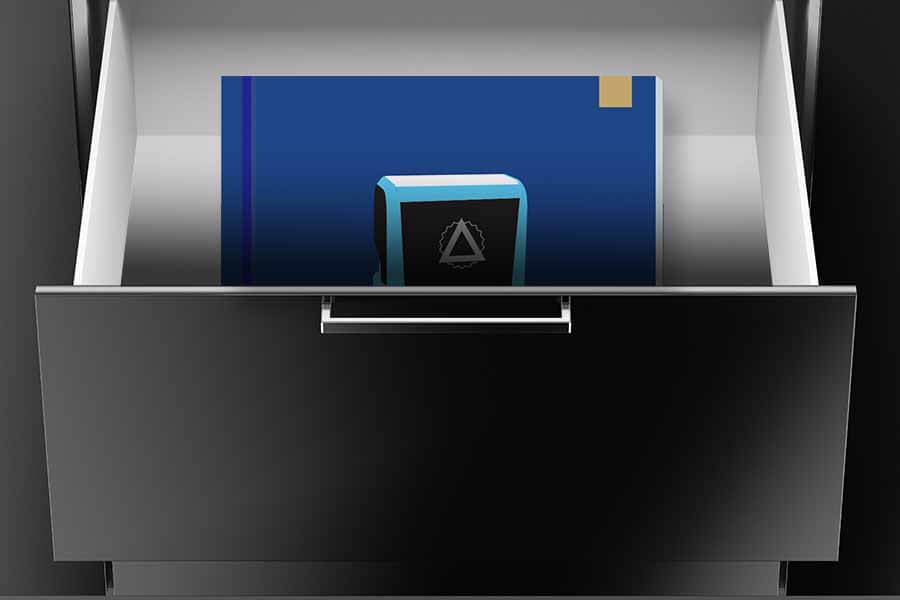
Proper storage of your Notary seal and journal is essential for preventing fraud, protecting signer information, and complying with state laws. Some states provide detailed rules for securing Notary tools and disposing of old seals and journals, while others place responsibility on the Notary to follow best practices. These four key do’s and don’ts will help you safely store your Notary tools and meet legal requirements.
- Don’t leave your Notary journal and seal unattended
- Store your Notary journal and seal in a secure, locked area
- Don’t lend your Notary seal and journal to anyone
- Follow state rules for disposal of old Notary seals and journals
1. Don’t leave your Notary journal and seal unattended
Whether you notarize at home or the office, never leave your seal and journal unattended in the open where they can be stolen or misused by unauthorized persons. If you work as a mobile Notary, don’t leave your seal and journal visible in your car where someone might break in and take them.
2. Store your Notary journal and seal in a secure, locked area
When not using your Notary tools, the best place to keep them is a locked, secure area such as a safe or a locked drawer. California state law requires seals to be stored in this manner (GC 8206[a][1] and 8207).
Illinois law states that when not in use, the journal must be kept in a secure location and accessible only to the Notary Public, such as the Notary’s sole possession or a locked location to which only the Notary has access (IAC 176.940 a)).
Texas requires a Notary’s paper and traditional journal records to be retained “in a safe and secure manner” for either the length of the Notary’s commission or 3 years after the date of notarization, whichever is longer (1 TAC 87.54), while online journal records must be stored for 5 years following the date of notarization (1 TAC 87.54[b]). Even if state law does not specify how your tools are to be stored, it’s a good practice to keep them in a secured location when not in use.
3. Don’t lend your Notary seal and journal to anyone
Your seal and your journal are your responsibility, and you should never lend or entrust them to other people. That includes family or co-workers — no one other than the commissioned Notary is authorized to use the Notary’s seal of office.
Florida law states that the seal is the exclusive property of the Notary and must be kept under the Notary’s control at all times. Florida also prohibits surrendering a seal to an employer if a Notary leaves a job, whether or not the employer paid for the seal or the Notary’s commission (FS 117.05[3][b]).
Arizona and Oregon allow Notaries to turn journals over to employers, but only under special circumstances.
Colorado Notaries may leave journal records with an employer when their commission ends but must provide the employer’s contact information to the Secretary of State (CRS 24-21-519[10][a] and (CRS 24-21-519[10][b]).
4. Follow state rules for disposal of old Notary seals and journals
Different states have different rules for storing and disposing of old Notary seals and completed Notary journals. Always be sure to follow the rules of your state regarding old seals and journals. California requires Notaries to destroy or render their seal unusable when their commission permanently ends (GC 8207). Maryland requires Notaries to keep their journal records of every notarial act for 10 years after the last notarization in the journal was performed (ACM St. Gov’t 18-219[a][2]).
If your state does not provide guidelines for the disposal of obsolete seals or journals, the NNA recommends destroying or defacing your seal when your commission ends, but keeping your old journals for a period of time in the event one of your old notarizations is questioned or challenged in court.
David Thun is the Editorial Manager at the National Notary Association.
Related Articles:
4 things to know about using your Notary seal and journal at the office
4 tips for Notaries dealing with natural disasters